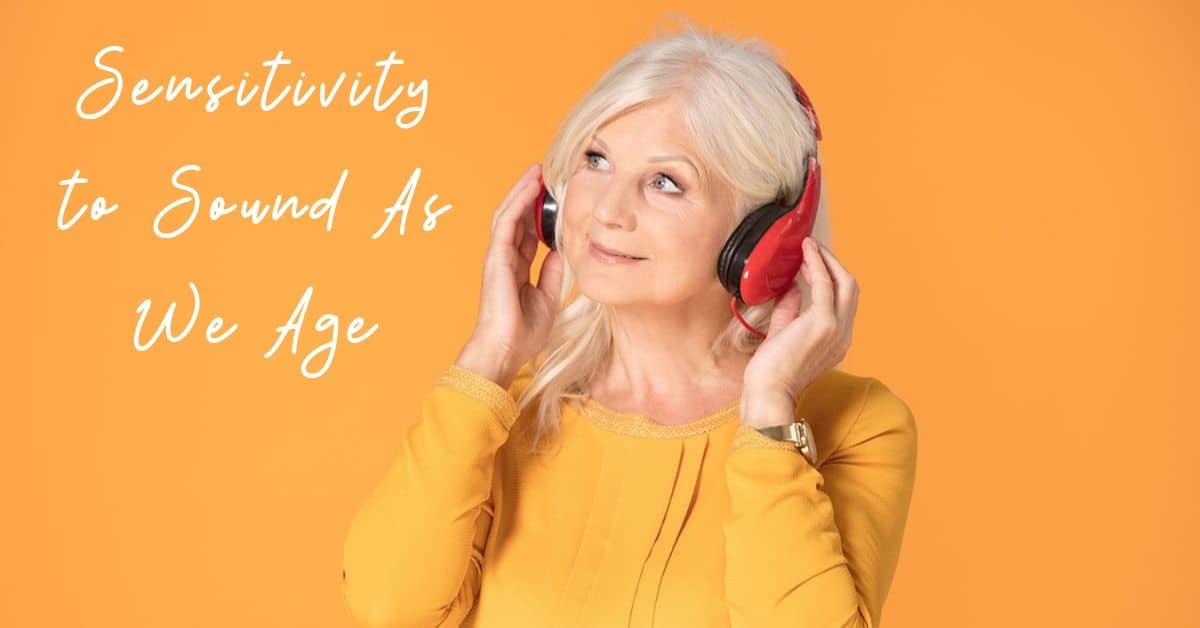
- Common Misconceptions That Delay Hearing Loss Diagnosis - June 6, 2025
- Signs Your Earwax Buildup Needs Professional Attention - May 29, 2025
- Preparing for a Hearing Test and What You Should Bring - May 16, 2025
As we age, we begin to witness how everyday things start to change. We may find ourselves moving a little slower, require more time to recharge our energy reserves and for many, sound seems to affect us differently. You aren’t’ just imagining that some sounds seem louder than others and becoming more grating on your patience than before.
The science of your sensitivity
By exploring differences in the way younger and older adults respond to sounds, neuroscientists at Western University in Canada have found that our brains become more sensitive to sounds as we age. This may lead to hearing challenges over a lifetime. The researchers examined the auditory cortex responses of participants in their 20s and 60s. They found that younger and older people respond differently to soft and loud sounds.
“We looked at younger and older individuals who have clinically normal hearing and we looked at how the brain’s ability to adjust its sensitivity to sound levels is affected by aging,” said postdoctoral scholar Björn Herrmann, the study’s lead writer.
Older people more over-sensitive to sounds
Older adult brains didn’t adapt as well to their environment, the study found. The aging listeners were over-sensitive to noises and were less able to tune out irrelevant distraction sounds. Background noise at a busy restaurant is more likely to be a challenge in an elder person’s ability to focus in on a conversation.
“It’s a fundamental property of the auditory system to be able to adjust really fast to any environment a person goes into,” Western postdoctoral scholar and study lead author Björn Herrmann said in a statement. “If you cannot do that anymore, then in each situation your auditory system might be a little off. This means older individuals may be easily distracted and overwhelmed by sounds, or find them too loud.”
Auditory cortex study
An article published in the Journal of Neuroscience said a study examined the auditory cortex of individuals in their 20s and their 60s and they were different. This might explain, researchers said, why some individuals as they age develop oversensitivity to sounds.
As you grow older, the number of hair cells and nerve fibers that are responsible for picking up sounds in the inner ear are reduced. The ability to grade different intensities of sound also becomes impaired. To compensate for this, you will often “switch on” all remaining nerve fibers to produce almost maximum loudness. As a result, even quite moderate sounds may seem to be unbearably loud.
Some studies have shown that a reduced blood flow, which is a natural part of aging, causes changes in our ears. It could also be due to prolonged exposure to loud noises or a combination of factors. Once the cells are damaged, they do not recover. We notice first that different sound ranges are impacted. The high range goes first.
Comprehension with excess background noise
Approximately 38 million people in the United States have hearing loss. The inability to understand speech-in-noise is one of the main complaints of people with untreated sensorineural hearing loss. Older adults report problems understanding a conversation with noise around them. Part of the problem is hearing loss, but new studies also show the brain’s ability to filter out background noise changes as we age.
Many hearing aids have a button you push to select a particular “listening program”. For example, if your hearing aids have two listening programs, the first program is designed for normal listening, such as talking to people across a room or listening to television. The second program might be designed for communication in a noisy setting like a crowded restaurant. The amount of background noise that hearing aids eliminate differs markedly from patient to patient and from hearing aid model to hearing aid model.
Hearing Aid Specialists of the Central Coast
Our team at Hearing Aid Specialists of the Central Coast provides comprehensive hearing health services, from a hearing test to hearing aid fittings. If hearing aids are needed, we work with you to find a model and style that you find most comfortable and useful. As you age your hearing is one of the most important senses that can keep you feeling alert into your golden years. Call us today to set up a hearing test.
